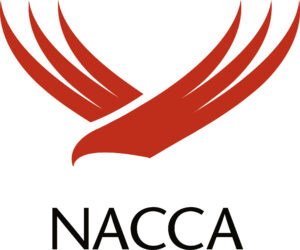
Defining Indigenous businesses in Canada
By Adam Freill
Construction Financing LeadershipDefinitions created by coalition of Indigenous economic organizations aim to ensure contracts genuinely empower Indigenous entrepreneurs.
 A national set of consistent definitions is now available to direct the procurement of goods and services to legitimate Indigenous businesses across the country. The Indigenous Business Definitions, were released earlier this month by the National Aboriginal Capital Corporations Association (NACCA), an umbrella organization for a network of more than 50 Indigenous Financial Institutions (IFIs) across Canada.
A national set of consistent definitions is now available to direct the procurement of goods and services to legitimate Indigenous businesses across the country. The Indigenous Business Definitions, were released earlier this month by the National Aboriginal Capital Corporations Association (NACCA), an umbrella organization for a network of more than 50 Indigenous Financial Institutions (IFIs) across Canada.
In 2021, the federal government announced a government-wide procurement target of five per cent for Indigenous businesses. With annual expenditures of $22 billion overall, this amounts to hundreds of millions of dollars per year in business for First Nations, Métis, and Inuit entrepreneurs, explained NACCA as the organization introduced the list.
“We welcome the five per cent target,” stated Shannin Metatawabin, CEO of NACCA. “But we need to ensure that the contracts are going to Indigenous entrepreneurs—enhancing the well-being of our people, their families, and their communities. This is why we’ve developed the Indigenous Business Definitions.”
Created by a coalition of Indigenous economic organizations, the definitions can be used by public and private sector actors at all levels—including provincial, territorial and municipal governments, as well as by Canadian businesses of any size.
A living document, NACCA explained that the definitions will undergo regular updates, adding that the codification of the terminology, along with the federal government’s five per cent procurement policy and the newly launched First Nations Procurement Organization brings hope that these developments will have a profound impact on Indigenous businesses with rippling positive effects throughout the Canadian economy.
The definitions were developed by a working group of five national Indigenous economic organizations and three national Indigenous representative organizations, building consensus and a shared understanding in arriving at definitions for Indigenous sole proprietorships, corporations, non-profits, charitable organizations, cooperatives and micro-enterprises.
“We needed a clear set of criteria—developed by Indigenous people—to set out which businesses should legitimately benefit,” explained Jean Vincent, chair of NACCA’s board. “Now we have those criteria.”
The organization says the definitions will offer clarity in a context that has long seen false claims of indigeneity, tokenism, and other modes of deception by bad actors seeking to gain an advantage in procurement processes. They will help increase access to financing for Indigenous businesses and improve Indigenous business data. And they will improve accountability and transparency surrounding procurement targets, so that all can understand whether targets are being met.





